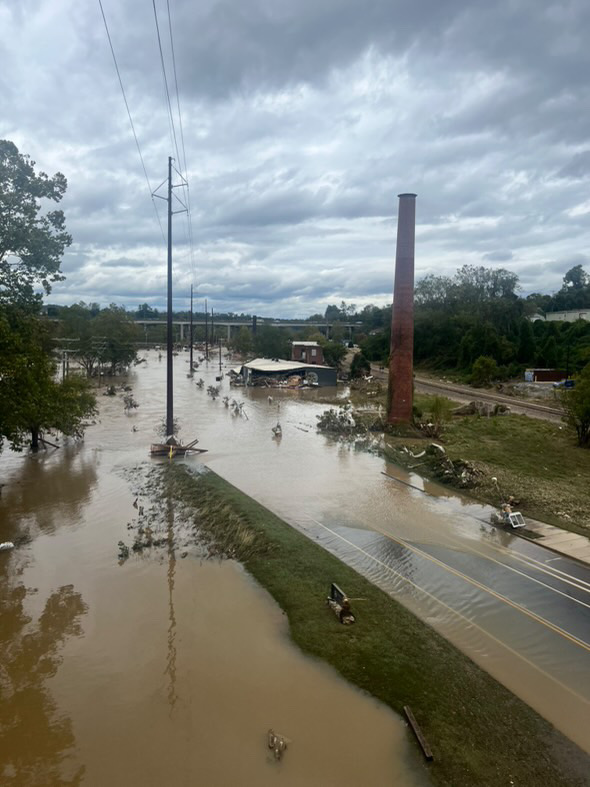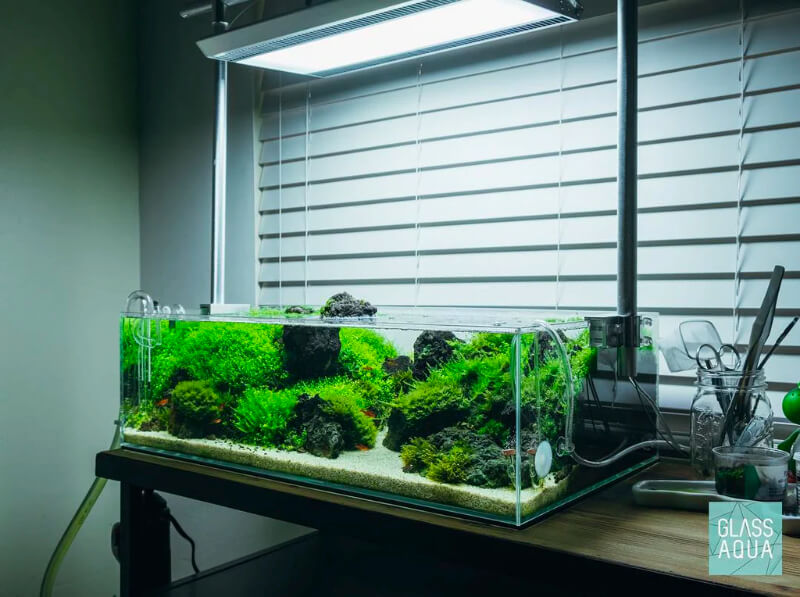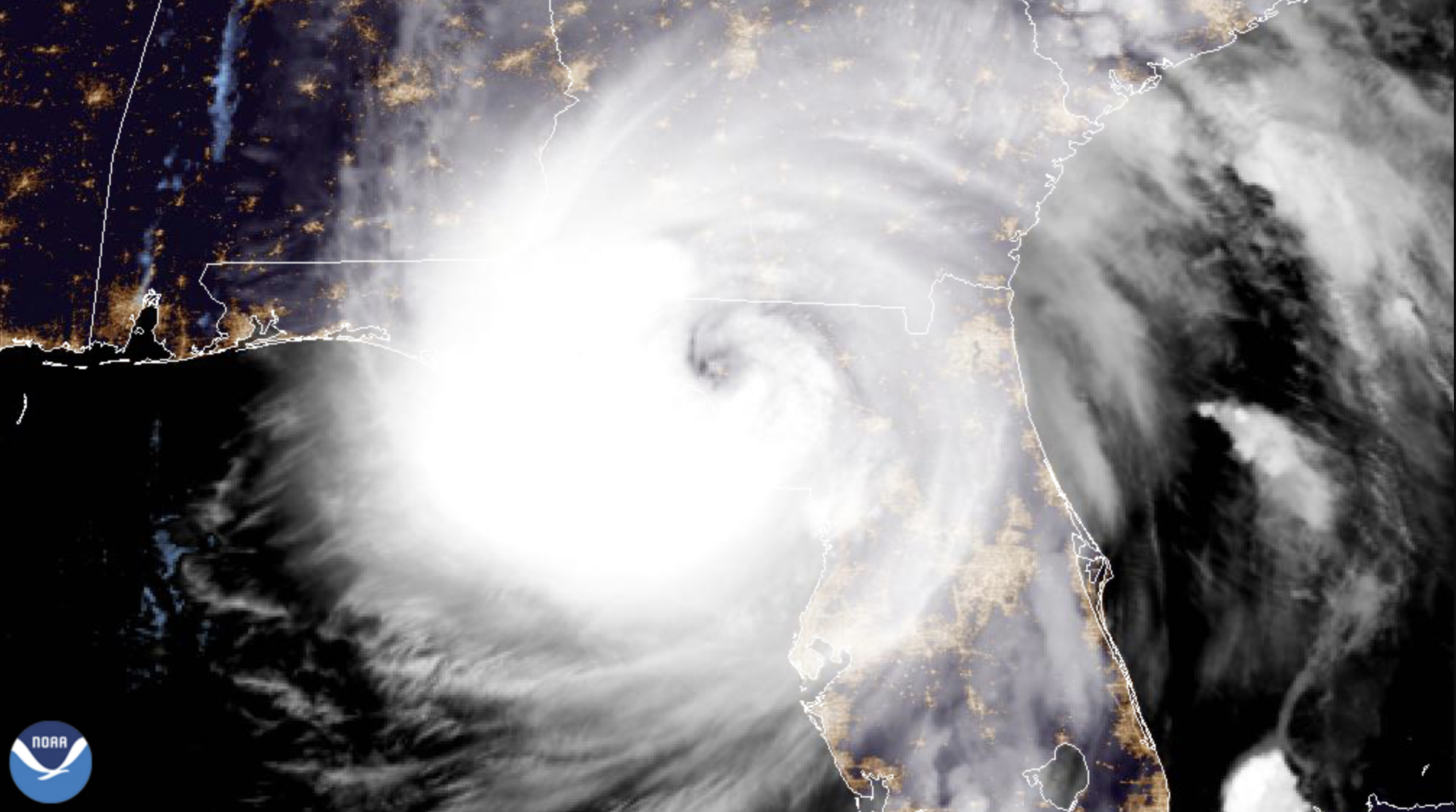This hurricane season has been especially active in the Southeast. Sadly, just as several communities begin their recovery from Hurricane Helene, another major storm is already looming off the coast of Florida. I reached out to Austin Lee, a reef keeper in North Carolina, to find out how the Reef Builders community can lend a hand and remind us how best to prepare our aquariums for impending natural disasters.
Can you start by introducing yourself, where you’re located, and how you got involved in the reef-keeping hobby?
My name is Austin Lee. I live just east of Asheville in McDowell County, NC. I got started in the reefing hobby in about 2014. When I was growing up, my older cousin always had a 75-gallon reef tank in his bedroom that I found fascinating. Once I was in college and had my own money, I decided to go ahead and give reefing a shot. Whether or not I’ve had an active tank that whole time, I’ve been hooked ever since.
Hurricanes are unfortunately common in the Southeast, but what made Hurricane Helene stand out from previous storms in your experience?
Although I live in NC now, I grew up in Florida. Despite that, I’ve never experienced a storm with this much widespread impact and as destructive as this one. What was truly different about it was the amount of water it dumped on our entire region (causing flooding and mudslides, but also the strong winds that dropped trees and snapped power poles everywhere. In this region, we always hear that hurricanes don’t happen in the Appalachians because the mountains “break them up.” I don’t think we can say that anymore.
While we’ve all seen the destruction on the news, can you describe your personal experience during and immediately after Hurricane Helene? What was it like for you, your family, and your reef tank(s)?
This whole experience was quite harrowing. As far as my story, I went to bed Thursday night prepared for a power outage but did not really think it was likely (given that hurricanes are usually just a rain event here). When I woke up early Friday morning, we had howling winds sideways rain, and no power or cell service. I stepped onto my porch and could hear trees falling all throughout my neighborhood for several hours any time I was standing on my porch. When I could hear how many trees were falling (and how often), I knew this would be a bad storm. However, the lack of ability to communicate with anyone else made the scope of the destruction not known to me until as late as Saturday morning.
Luckily, much to the dismay of my reefing friends, I’ve been slowly but surely setting up my next system (a Waterbox 70.2) for the better part of 3 months now. So I thankfully didn’t see any losses to livestock, and my tank was safe and sound in my home.

Many hobbyists operate with the mindset that “it won’t happen to me.” In situations like a power outage, what are the essential tools or equipment every reefkeeper should have to protect their tanks?
As I mentioned earlier, that was really much of the mindset in this area with our communities knowing that typically hurricanes get broken up by the mountains. Unfortunately, as our climate continues to warm at a rapid rate, natural disasters and weather events like this will only become more and more frequent throughout the country and the world. I heard a great quote this week that I think applies to that mindset – “Without action on climate change, you’ll scroll past the disaster videos on social media until you’re the one filming them.” We all think it can’t or won’t happen to us, but it’s better to be prepared for when it happens than be unprepared when it happens.
I think the biggest thing is a generator. In the grand scheme of things and the money we spend on our tanks, the cost of a generator is really not bad. If you have a monthly tank budget, don’t spend it for a couple of months, buy a generator, and be ready and save your reef when a storm does hit. Also, have an action plan. As soon as you lose power, what steps do you need to take in the first hour, half day, and day to save your reef? What if the outage is longer than a day? A week? Create an emergency plan and practice it. Keep your emergency supplies easily accessible – not behind a bunch of junk in your garage.
Do you have any specific examples of reef keepers who were hit hard by the storm but managed to save their tanks? What did that process look like?
I do! I spoke with a local reefer in our local reefing club (shoutout to Carolina Reefing Community!) and this person had 10 tanks running as the storm was approaching. In preparation for the storm, they started thinking about what was “absolutely essential” for the survival of the tanks. What tanks could be combined for a short period during a power outage, what pieces were compatible to be combined in tanks together, and what pieces of equipment were absolutely necessary to maintain the survival of the animals in their care.

They ended up losing power for a week and a half and pared their tanks down to two tanks during the outage. They operated with heat and flow, and minimal light throughout the day. They plugged this equipment directly into their generator and then tried to ensure they had enough gas to keep the generator running (a challenge in and of itself). They checked the water chemistry on a much more regular basis and began manual dosing accordingly to make sure none of their parameters were tanking.
Although they saw 1-2 coral losses, a majority of their system is back up and operational today.
Beyond the reef-keeping community, there are many ways to help in the recovery. Could you highlight some of these opportunities and share where people can find more information or donate?
Absolutely! There are so many ways to help, so here are a few:
Donate to BeLoved Asheville: https://www.belovedasheville.com/donate/
This group is on the ground in Asheville and surrounding communities making sure that people have the resources they need as they navigate the aftermath of the storm. This money goes directly to fund those operations now.
Donate to Old Fort Businesses: https://www.gofundme.com/f/Support-Old-Fort-NC-Small-Businesses
A smaller community outside of Asheville was hit quite hard and many businesses were either entirely wiped out or working to recover. This fund is for local businesses. The goal is to give $5,000 to every local business in town.
Donate to Clearwater Marine Aquarium: https://www.facebook.com/ClearwaterMarineAquarium/posts/pfbid02FNPCbXr7J4FETdNXc3aFFfA9hQSV6PoVQGFS5yVzy7234SVeX1AJWnzG1UeJPf4zl
While not in my area, this group does great rescue and rehabilitation work and they were hit hard in Florida when Helene came ashore. This post has information on how to donate. These funds will be used for them to acquire new equipment when needed and to make necessary repairs to their facility.

Is there anything else you’d like to share with the Reef Builders community today, whether it’s advice, stories, or ways we can continue to support those affected?
I think the big takeaway is to be prepared. As you mentioned earlier, everyone thinks it won’t happen to them, but no matter what part of the country or world you’re in, severe weather and power outages are likely to happen at some point. With that in mind, make sure you have the right equipment to be totally offline for at least a day, and know how to activate your emergency plan and work that equipment.
If you’re inclined to help the area, the best way to do so is at the links I shared above. Many folks have been trying to physically come to the area. Unless you’re with an organization before you get here, we’re urging folks to stay home and try to help from afar – as much as that can feel like you’re not really helping. Having too many unorganized people in a disaster area can make an organized response more difficult for the folks who are trained.
Finally, if you have a trip planned to Western North Carolina before the end of the year, many local leaders are asking people to reschedule. As much as we wish we could welcome visitors during our peak season, our towns are just not ready for you yet. We still need quite a lot of time to recover and need the resources we do have here to go to locals and first responders. With that said, we can’t wait to see anyone who wants to visit sometime next year.
Image Credits Tayler Gautier.



